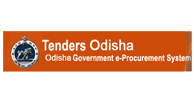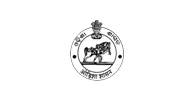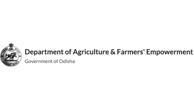The GCF project, titled "Ground water recharge and Solar Micro Irrigation to ensure food security and enhance resilience in vulnerable tribal areas of Odisha", aims to enhance climate resilience and promote sustainable development in the state of Odisha, India.
Aim/Primary Objective of the GCF Project: The primary objective of this project is to enhance groundwater recharge in the community ponds through structural adaptation measures and use of solar pumps for micro-irrigation to ensure water security and food security in the vulnerable areas of the state of Odisha, India.
Sub-Objectives of the Project: The sub-objectives to achieve its primary aim:
- Augmentation of groundwater recharge to improve water table and water quality conditions in rural areas (Gram Panchayat) through the adoption of recharge systems in existing village ponds/tanks.
- Sustainability of groundwater-based schemes (domestic/irrigation) at the Gram Panchayat level, including the revival of defunct community tanks used as drinking water sources for reducing vulnerability.
- Use of solar pumps for irrigation as a component of a low-emission, climate-resilient crop planning strategy.
- Increased climate-resilient sustainable development.
- Enhanced livelihoods and increased resilience for the most vulnerable people, communities, and regions.
- Increased resilience of health and well-being, and food and water security.
- Promotion of a sustainable strategy for energy security through low-emission crop water management.
- Create a knowledge base for enabling policy and regulatory framework for market transformation
Components and Activities of the GCF Project: The project is structured into seven main components, each with specific outputs and activities:
Renovation of Community Tanks
- Activity 2.1.1 (a): Tank renovation Country (World Bank) This activity covers the renovation of tanks, supported by World Bank funding, focusing on improving water availability. It involves structural aspects like desilting, compacting, and bunding, based on community-participatory plans.
- Activity 2.1.1 (b): Tank renovation Country (Government Convergence) This activity also covers tank renovation, specifically supported by government convergence funding, enhancing water availability and improving the overall condition of tanks.
- Activity 2.1.2: Creation of Dug well in the impact area for irrigation This involves the construction of 150,000 dug wells in the project's impact areas, primarily for irrigation purposes.
- Activity 2.2.1: Crop water budgeting based on agro-climatic zone This activity focuses on preparing detailed crop water budgets for nine agro-climatic zones. It aims to raise farmer awareness about crop water requirements, available water sources, and efficient water use methods, including demonstration.
- Activity 2.3.1: Water sharing master plan development This activity involves creating a water sharing master plan to ensure equitable distribution of water, prioritizing women-headed households and fair gender representation in Pani Panchayats. Rotational irrigation is promoted for equity.
- Activity 2.4.1: Livelihood improvement plan preparation This activity involves preparing plans to improve livelihoods for all stakeholders, including the landless, based on a livelihood analysis and food security considerations.
- Activity 2.5.1: Cost of Baseline water quality assessment in 10000 tank areas This activity covers the initial cost of assessing water quality in 10,000 tank areas. Farmers are educated on water quality and advised on minimizing pesticide and fertilizer use, promoting organic farming to reduce health hazards.
- Activity 2.5.2: Cost of Post Intervention water quality assessment in 10000 tank areas This activity funds the post-intervention assessment of water quality in the 10,000 tank areas to monitor improvements and ensure ongoing quality.
- Activity 2.6: Guidance on nutrition and health relating to water quality and food is provided through AWC This activity focuses on providing guidance related to nutrition and health, specifically concerning water quality and food, through Anganwadi Centers (AWCs). The aim is to educate children and parents on not polluting water and proper nutrition.
Output 2.1: Tank water level and other assessments and renovation completed for all 10000 with necessary Dug well creation for irrigation
Output 2.2: Crop water budgeting based on agro-climatic zone prepared
Output 2.3: Water sharing master plan developed
Output 2.4: Livelihood improvement plan prepared
Output 2.5: Water quality sample drawn from random wells











